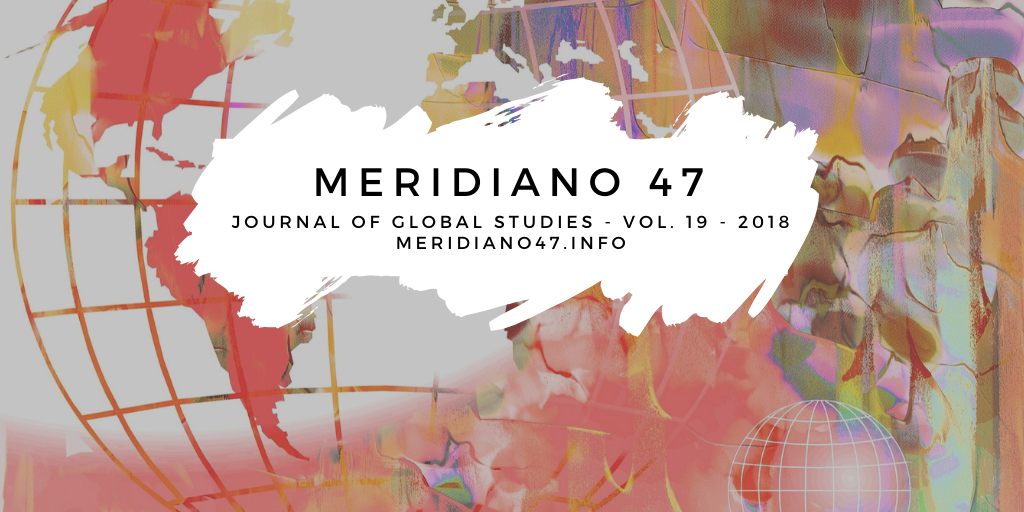The Internet as a global public good and the role of governments and multilateral organizations in global internet governance
DOI:
https://doi.org/10.20889/M47e19007Keywords:
Global public goods; International cooperation; Internet governance; International public policyAbstract
The Internet presents social and economic attributes of a global public good, requiring governments and multilateral organizations to play central roles in Internet governance. This article examines the Internet as a global public good, identifies the roles of governments and multilateral organizations in global Internet governance, describes the current status of multi-stakeholder governance, and proposes guidelines to improve international cooperation.
Downloads
References
Bryant, Ralph C. 1995. International Coordination of National Stabilization Policies. Washington, DC: Brookings Institution.
DeNardis, Laura. 2014. The Global War for Internet Governance. New Haven: Yale University Press.
Dervis, Kemal. 2005. A better globalization: Legitimacy, Reform, and Governance. Washington, DC: Brookings Institution Press.
Drezner, Daniel W. 2004. “The global governance of the Internet: Bringing the State back in.” Political science quarterly 119 (3), 477-98.
Edwards, Michael, and Simon Zadek. 2003. “Governing the Provision of Global Public Goods: The Role and Legitimacy of Nonstate Actors.” In Providing Global Public Goods: Managing Globalization,
edited by Inge Kaul, Pedro Conceição, Katell Le Goulven, and Ronald U. Mendoza, 200-24. New York: Oxford University Press.
Eisenach, Jeffrey A. 2015. The economics of zero rating. Research paper for the National Economics Research Associates (NERA).
Gurnstein, Mike. 2012. Towards the Internet as a global public good [blog post]. Retrieved April 4, 2017 from https://gurstein.wordpress.com/2012/12/20/towards-the-Internet-as-a-global-public-good/ITF (International Task Force on Global Public Goods). 2006. Meeting Global Challenges: International Cooperation in the National Interest. Final Report. Stockholm, Sweden.
Kaul, Inge. 2013. “Meeting Global Challenges: Assessing Governance Readiness.” In The Governance Report 2013; Hertie School of Governance; Sovereignty, Fiscal Policy, Innovations, Trade-Offs,
Indicators, edited by Anheier, Helmut K, 33-58. Oxford: Oxford University Press.
Kaul, Inge, Pedro Conceição, Katell Le Goulven, and Ronald U. Mendoza (eds.). 2003. Providing Global Public Goods: Managing Globalization. New York: Oxford University Press.
Kaul, Inge, Isabelle Grunberg, and Marc A. Stern. (eds.). 1999. Global Public Goods: International Cooperation in the 21st Century. New York: Oxford University Press.
La Rue, Frank. 2011. “Report of the Special Rapporteur on the promotion and protection of the right to freedom of opinion and expression”, United Nations Human Rights Council, Seventeenth
session, Agenda Item 3. Geneva: UNHRC.
Mueller, Milton. 2013. Networks and States: The Global Politics of Internet Governance. Cambridge, MA: The MIT Press.
Nye, Jr., Joseph S. 2011. The Future of Power. Perseus Books Group. Kindle edition.
Ocampo, Jose A. 2013. Global Economic and Social Governance and the United Nations System. Working Paper. IPD-ECLAC project on global governance.
Sandler, Todd. 2004. Global Collective Action. Cambridge: Cambridge University Press.
Stiglitz, Joseph E. 1999. “Knowledge as a Global Public Good.” In Global Public Goods: International Cooperation in the 21st Century, edited by Inge Kaul, Isabelle Grunberg, and Marc A. Stern,
308-25. New York: Oxford University Press.
Spar, Debora L. 1999. “The Public Face of Cyberspace”. In Global Public Goods: International Cooperation in the 21st Century, edited by Inge Kaul, Isabelle Grunberg, and Marc A. Stern, 344-63. New York: Oxford University Press.
UN (United Nations). 2005. Tunis Agenda for the Information Society. World Summit on the Information Society. Tunis: United Nations.
World Bank. 2016. World Development Report 2016: Digital Dividends. Washington, DC: World Bank. doi:10.1596/978-1-4648-0671-1. License: Creative Commons Attribution CC BY 3.0 IGO.
WHO (World Health Organization). 2010. Telemedicine: Opportunities and Development in Member States. Geneva: WHO.



